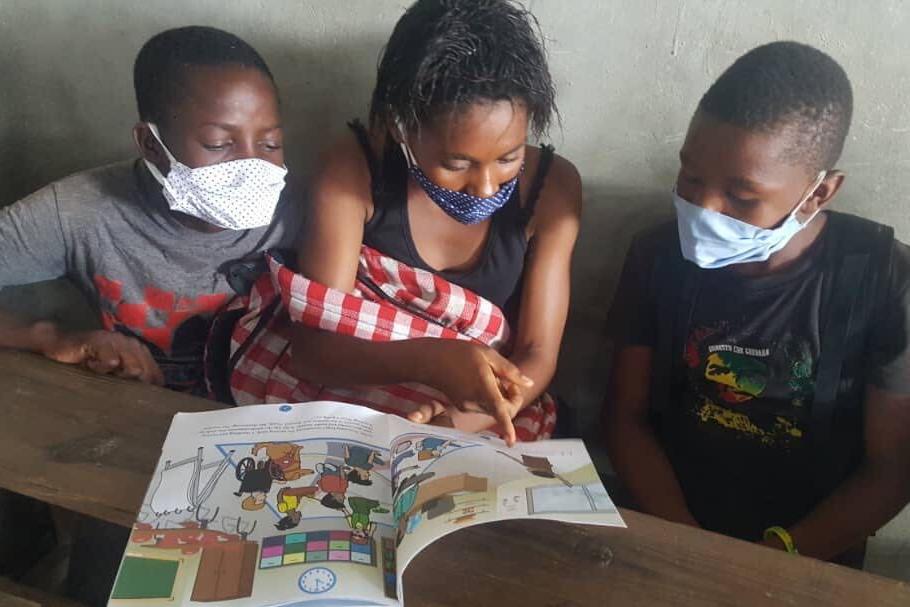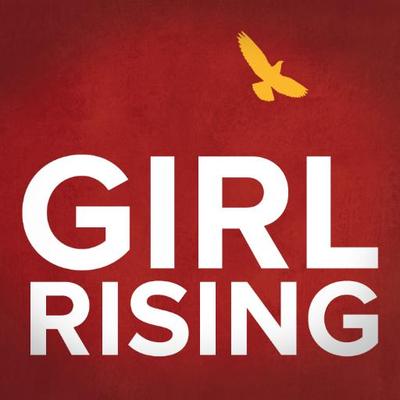
Photo: Young students read HP "Turn to Learn" booklets; the tech giant works with NGOs such as Girl Rising to boost economic and education opportunities for girls and women worldwide.
Women’s History Month has traditionally been a time to celebrate the achievements of women and progress towards equity. We’re seeing unparalleled leadership and innovations by women during the COVID-19 pandemic: Dr. Kizzmekia Corbett who helped develop the Moderna COVID-19 vaccine; Prime Ministers Sheikh Hasina from Bangladesh and Jacinda Ardern from New Zealand who protected their citizens from the worst of the pandemic’s impact; and the millions of women on healthcare’s front lines.
But this year, the celebration comes alongside a reckoning. For a year now, we’ve seen girls and young women bearing the brunt of COVID-19 and its wave of shadow epidemics. Let’s start with our fellow working women. Across the globe, women are leaving the workforce at higher rates than men, and recent projections estimate that employment for women may take an additional two years to recover than for men.
And how about our future workforce, including the girls and young women that Girl Rising and HP support? Before the pandemic, 130 million girls did not have access to school. Now UNESCO estimates that 11 million girls who were in classrooms this time last year are at risk of never returning. Countries around the world report that violence against girls and young women has reached new heights, with similarly alarming trends in early marriage and unintended pregnancies.
The challenges that women and girls face today didn’t just stem from the pandemic. Gender inequity is a plague that blemished our society for as long as we remember and the pandemic only worsened its effects. But today’s crisis is also a moment of learning.
It’s clear we need to reshape the structures, policies, and norms like closing the gender pay gap, increasing gender representation in leadership across all sectors, providing paid maternity leave and deepening investment in girls’ education. But we also need to lean into the blind spots where, without a new resolve to tackle in a meaningful way, we risk losing ground.
Recruiting boys and men in the battle
Today, a major void in K-12 education is designated lessons on gender and racial equity. Educational programming at Girl Rising intentionally engages both girls and boys, reaching young people during the critical adolescent period when gender roles and biases become ingrained. HP not only supports Girl Rising’s educational curriculum, but also partners with NABU to develop children’s books focused on racial and gender equity. The bottom line is that the earlier boys are engaged in this type of learning, the easier it is to stop gender and racial bias from the get-go.
By leveraging their power and privilege, boys and young men can help shift norms about gender and masculinity and challenge the beliefs, practices, institutions and structures that drive inequity between men and women. Engaging boys and men to change expectations around women's roles will also help close the gender gap in leadership and earnings across all industries, which, left unchanged, will take almost 100 years to close. Also, when girls see their fathers equally engage in domestic care and work, they are more likely to work outside the home and pursue occupations that transcend gender stereotypes.
Homework over housework
Girl Rising and our program partners have seen the growing burden of housework disproportionately placed on girls, squeezing out their time for school and studies. Even before the pandemic, UNICEF estimated that girls between 5 and 14 years old spend 40 percent more time, or 160 million more hours a day, on unpaid household chores compared to boys their age. New anecdotal evidence from Girl Rising shows a spiraling crisis of girls shouldering housework demands.
The mindset that a woman’s role belongs at the home easily continues into adulthood. And coupled with the lack of access to affordable, high-quality childcare, many talented women are prevented from advancing in their careers. During the pandemic, one in four U.S. women have considered leaving the workforce or downsizing their career due to double duty burnout. The result is a talent drain in the workforce and economic loss. In the U.S., the cost of lost earnings, productivity, and revenue due to the childcare crisis totals an estimated $57 billion each year. Although we’re seeing more women breaking glass ceilings, these data points reveal that gender roles remain incredibly powerful in both developed and developing countries. There is an urgent need for more solutions, policies and innovations that eradicate the mindset that men and boys are free from the responsibility of housework and caregiving.
It seems counterintuitive to put boys and our male counterparts at the center of empowering girls and women, but without their allyship, we can only win half of the battle. And that’s not good enough. Girl Rising’s new strategic plan to meaningfully impact the lives of one million adolescents will increasingly work with boys, male teachers and fathers to close the gender gap and create a more inclusive future.
So while Women’s History Month is no doubt about women, it's also about husbands, teachers, managers, sons and nephews that need to be actively deployed in the battle against gender inequity. As we rise from the pandemic that has disproportionately impacted girls and women, all of us – men and women – should use our collective power to demand and support efforts that put gender equity and intersectionality at the center.
Image credit: HP

Christina Lowery is CEO of Girl Rising, which she helped found in 2009.
Michele Malejki is the Global Head of Social Impact at HP.














